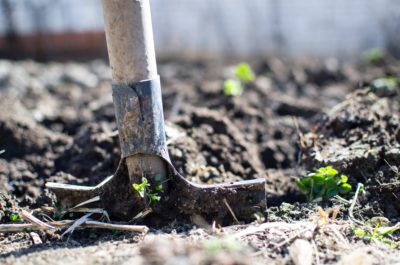I planted a garden this year. Even though I am 53 years old, I still like to play in the dirt. I like to cultivate things. It’s not a large garden by any means, but it’s mine.
What Do You Cultivate?
All of us try to grow something in our lives. For some, it’s our financial standing. They do everything with a view for how it will make more money for them.
Others grow popularity. They want to know and be known by the right people. They want other people to know who they are.
Many people try to cultivate possessions. They want the best house, car, clothes, or any other objects that the world values. Their life is a massive pursuit of more, better, and new.
You can probably think of a lot of other things that people you know try to grow in their lives.
A New Crop to Cultivate
I have read the verse countless times in my life. But when I read and studied Psalm 37:3 the other day, I saw something new for me.
Trust in the Lord, and do good;
dwell in the land and befriend faithfulness.
A word study on the phrase “befriend faithfulness” opened up my heart to some deep reflections. It turns out that we can translate the word “befriend” also a “cultivate.”
The basic idea is that of feeding and shepherding. The word refers to the work of a shepherd to make sure his flock always has sufficient food. Often that responsibility included cultivating pasture land since it was scarce in the land of the Bible.
In the Psalm, David challenges us to cultivate faithfulness. Not possessions. Not fame. No, not even good works. But faithfulness.
The Bible defines faithfulness as steadiness, consistency, and trustworthiness. Of all the things we could seek to grow in our lives, here David calls us to grow faithfulness.
Ways to Cultivate Faithfulness
The verses at the beginning of this verse provide some helpful instruction to farmers of faithfulness. Let’s take a look at some things we can do to see our lives grow in faithfulness.
Look up not out.
David begins the Psalm encouraging us to not get too worked up when the ungodly seem to prosper. “Fret not because of evildoers,” David says in verse 1. We watch the ungodly live as they do and they seem to escape consequences. Consequently, we face the temptation to let down our own guard and take some moral shortcuts. But to cultivate faithfulness, we – day in and day out – live like we are supposed to live regardless of others.
Trust God and keep on keeping on.
In verse 2, David encourages us to believe God and continue to do the right things. It is easy to give up when we do the right thing and see not results. It is even more tempting when doing the right thing seems to make our lives more difficult. But we cultivate faithfulness when we do right simply because God says it is right, and we believe Him.
Stand; don’t run.
In verse 3, David says to “dwell in the land.” Sometimes, we are too quick to look for an escape from our circumstances. David encouraged them to stay where they were. We cultivate faithfulness when we intentionally decide to make the most of our situation. The temptation is to look for greener grass, but the faithful do the necessary work of making the grass beneath them greener. Another way to put it is, “Bloom where God planted you.”
Seek to please God.
In verse 4, David instructs us to “delight yourself in the Lord.” We look to many other things for our pleasure. But the one who want to cultivate faithfulness will seek to do those things that bring pleasure to God. Essentially, the question becomes who am I aiming to please? Myself or God?
Continuing to Cultivate
Let me encourage you on your own to through the next few verses in Psalm 37. David includes several other ways we can cultivate faithfulness.
Commit your way to the Lord
Be still before the Lord
Wait patiently for the Lord
Faithfulness is a year-round crop. Even while we harvest its fruits, we continue to cultivate its growth.

